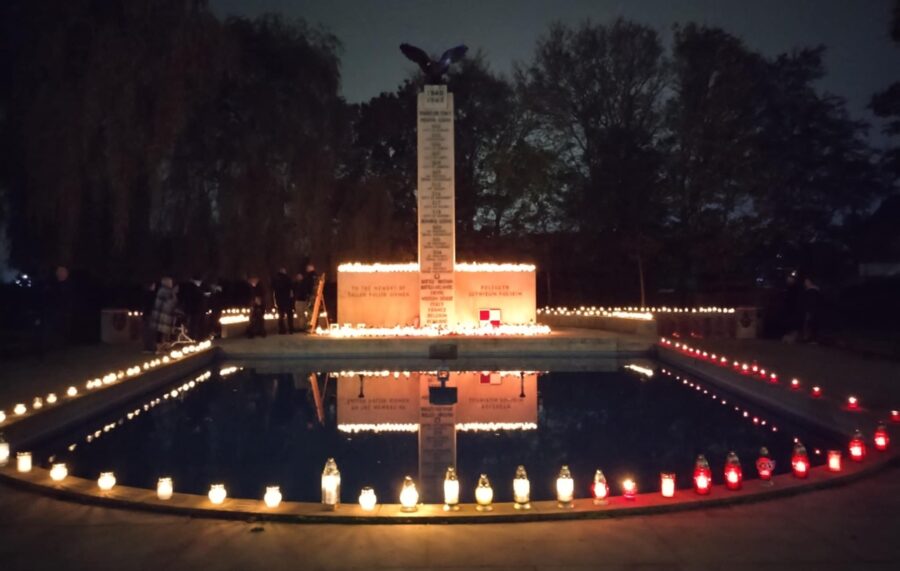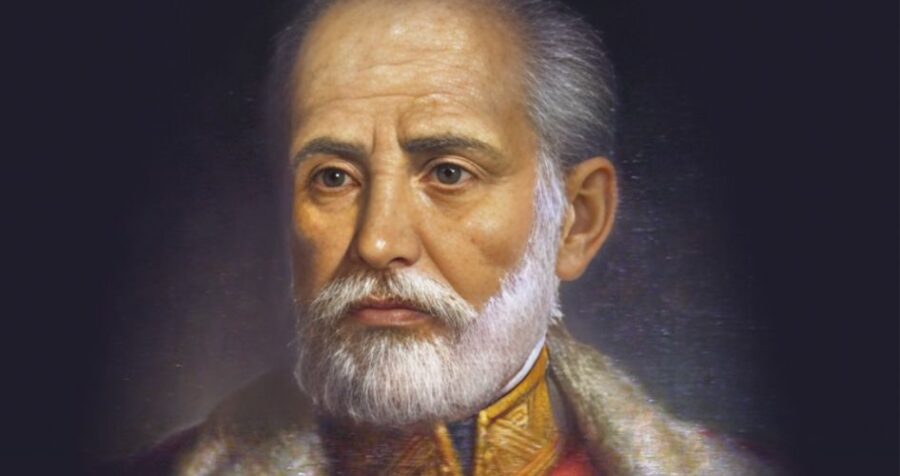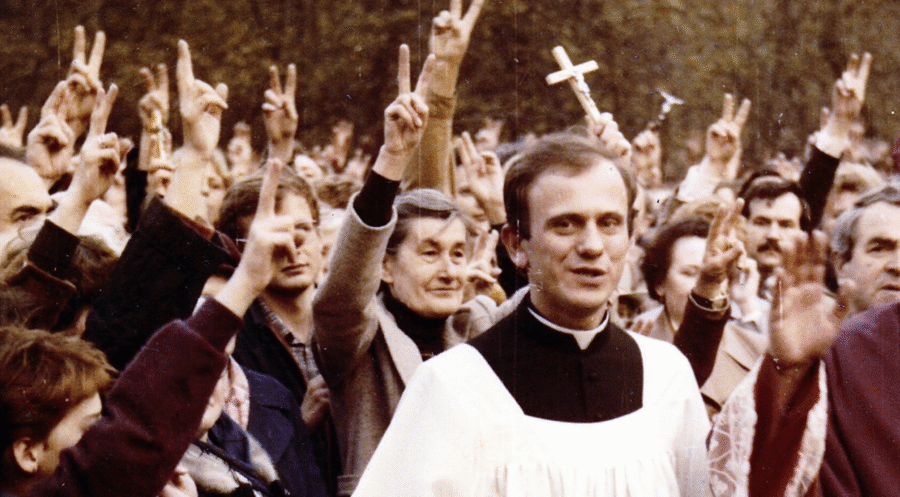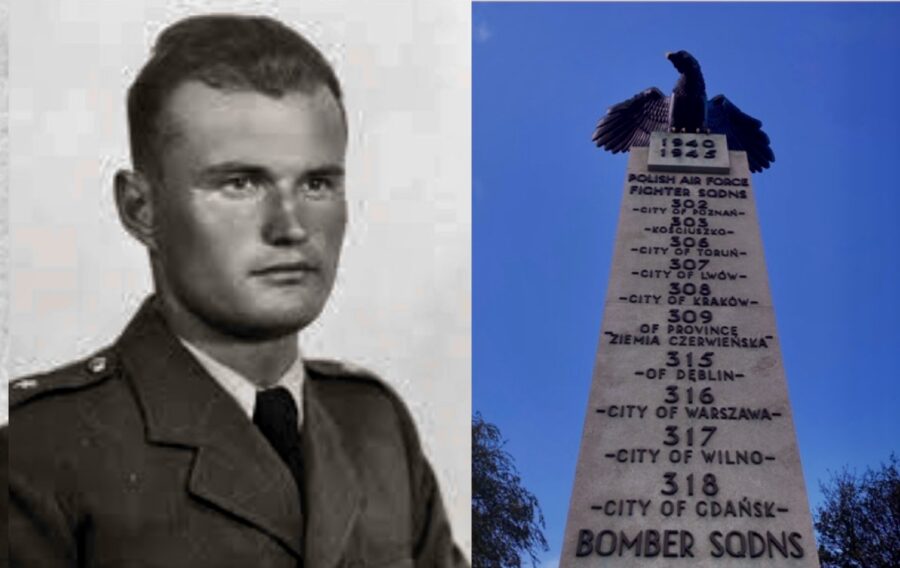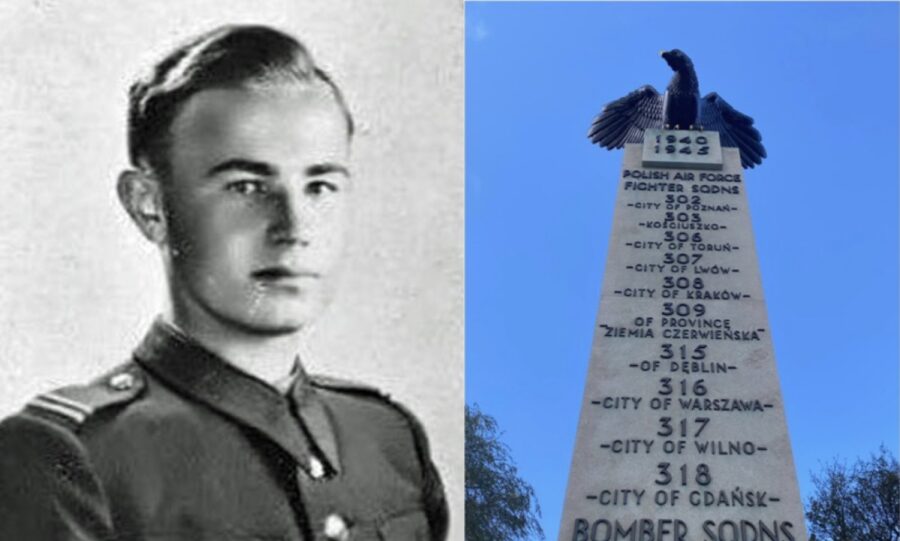Tadeusz Pietrzykowski began his boxing career as a teenager in the early 1930s. He was notably trained by the famous coach Feliks „Papa” Stamm. At the dawn of World War II, Tadeusz „Teddy” Pietrzykowski was Warsaw champion in the featherweight category.
During the first months of the conflict, he was actively involved in the defence of the Polish capital against the German invader. In the spring of 1940, he attempted to travel to France in order to join the newly formed Polish army. Arrested by the Hungarian authorities near the Hungarian-Yugoslav border, he was handed over to the Germans and subjected to a series of interrogations by the Gestapo. He was then tortured and beaten several times.
Tadeusz Pietrzykowski was transported to the KL Auschwitz concentration camp along with other prisoners on the 14th of June 1940. Over the next few months, they had to endure all kinds of atrocities that have been described in hundreds of books, which is why we will not dwell on them. “There were things happening that shocked us,” the hero of our story will recall decades later. “No one was planning to rebel. It was a matter of life and death. The choice for us was quickly made.” (1)
During his imprisonment, Pietrzykowski did a lot of physical labour which, like most inmates, degraded his health to near death from exhaustion. One fall day, he intentionally injured his foot by dropping a beam on it in the hopes of being redirected to a „lighter” type of activity. To his amazement, this is precisely what happened. His main motivation during his „stay” at Auschwitz was to find a ploy to get him an extra dose of food, given the laughable amounts granted by the camp leaders.
In March 1941, a new capo made its appearance among the SS. Rumours had it that Walter Dünning was a former middleweight boxing champion. In the days following his arrival, around 20 prisoners were rendered „unfit for work” by this cruel boxer which quickly sowed terror within the camp. A few weeks later, a prisoner came to meet Tadeusz Pietrzykowski to inform him that Dünning was having fun organizing boxing matches in the camp and that the volunteers would be given an extra ration of bread. „Teddy’s” eyes lit up. With nothing to lose, he accepted the challenge without hesitation. His campmates tried unsuccessfully to change his mind, explaining that Dünning had just broken the jaws of two other prisoners.
The “stake” to be won for participation in this fight represented a miserable half-loaf of bread and a cube of margarine.
On the day of the fight, the prisoners and capos gathered around the makeshift ring within the camp. The Germans were impatient to see their compatriot weighing 70 kg give a beating to this polnisches schwein [Polish pig] who weighed 30 pounds less. When „Teddy” appeared, the laughter started. Dünning asked him if he really wanted to fight. He nodded. Only one thought occupied his mind: there was food to win as a reward for this fight. The German, however, was there for the prestige. The Pole, on the other hand, was there to survive. “Ring frei! Kampf!” [The ring is free! Fight!] shouted the referee and senior judge of the camp, Bruno Brodniewitsch. (2) The fight began.
Tadeusz Pietrzykowski would later relate that there are „times when the impossible becomes reality”. Despite his handicap (due to his weight and his ill health), „Teddy” made his opponent dizzy. Right, right, left, dodge, left, right,… „Bij Niemca!” [Hit the German!] Encouraged the Polish detainees. After several balanced rounds, „Teddy” finally found himself to everyone’s surprise in a position to put Dünning K.O. He changed his mind at the last moment, being aware of the consequences that this could have had. The SS were stunned. „Teddy” received the ration of food that had been promised to him and shared it with the prisoners in his barracks, who also couldn’t believe what they had just witnessed.
During the following months, Tadeusz Pietrzykowski was called upon on numerous occasions to fight. It provided entertainment for the Germans and food so precious for our hero and his people. It was not uncommon for Pietrzykowski to face other Poles. He would later relate that he did his best not to inflict too violent blows on them so as not to give the Germans the satisfaction of a fratricidal struggle. “One day, I was fighting for this soup against an extremely weak Frenchman. I was dancing around my opponent so that the Germans would have fun watching when, furious, he threw himself at me. I dodged his attack and he hit the referee with all his might. The joy of the fight was twofold – 2 bowls of soup and a capo on the floor ”. (3)
Over time and the accumulation of victories, Pietrzykowski forged a solid reputation, including in the eyes of the SS who had mixed feelings for him. Some showed him some form of respect while others felt more disdain for this skeletal „sub-man” capable of beating up representatives of the „Aryan race”.
Indeed, „Teddy” faced several ex-German champions including Wilhelm Maier (1927 European runner-up in middleweight and two-time German champion) and Harry Stein. The Pole emerged victorious from each of these confrontations (4). The SS nicknamed him Weiss Nebel [the White Fog] in reference to the difficulty his opponents had in reaching him with their blows during combat.
In 1942 he even survived a poisoning attempt (5). In 1943 he was transferred to the Neuengamme concentration camp (south-east of Hamburg), where he continued boxing. He fought there twenty times and prevailed almost every time.
Tadeusz Pietrzykowski’s story is as appalling as it is inspiring. During the years he spent as a prisoner in the German death camps, he witnessed the most horrific and degrading scenes of torture and humiliation. The SS were very happy to see these hungry and skinny to the extreme men hurt one another. Despite all this suffering, „Teddy” managed not only to stay alive but also to give a glimmer of hope to the other prisoners with his victories in the ring.
Moreover, he was a particularly valuable and active member of the conspiracy movement coordinated by the legendary Witold Pilecki inside the Auschwitz camp. Another famous figure with whom Tadeusz Pietrzykowski befriended at Auschwitz include Father Maksymilian Maria Kolbe – a Polish priest beatified for giving his life to another prisoner.
When the war was over, Tadeusz Pietrzykowski returned to Poland. Due to the dramatic deterioration in his health, he was unable to regain his pre-war level in boxing. Graduated from the Academy of Physical Education in Warsaw in 1959, he was for many years professor of physical education in the town of Bielsko-Biała where he died in 1991. Last year, a movie entitled “The Champion” (Mistrz) telling the story of this legendary fighter was released.
Author: Sébastien Meuwissen
Photo: IPN
Sources:
- APMO, Zespół „Oświadczenia”, Relacja Tadeusza Pietrzykowskiego, t. 88, s. 5–6.
- idem, p. 10.
- Interview de Tadeusz Pietrzykowski, 1988.
- G. Wasylkowski, Pięściami o życie, „Sportowiec” 1989, n°13, p. 12.
- J. Cieślak, A. Molenda, Tadeusz Pietrzykowski ,„Teddy” 1917–1991, Katowice 1995 p. 91.



